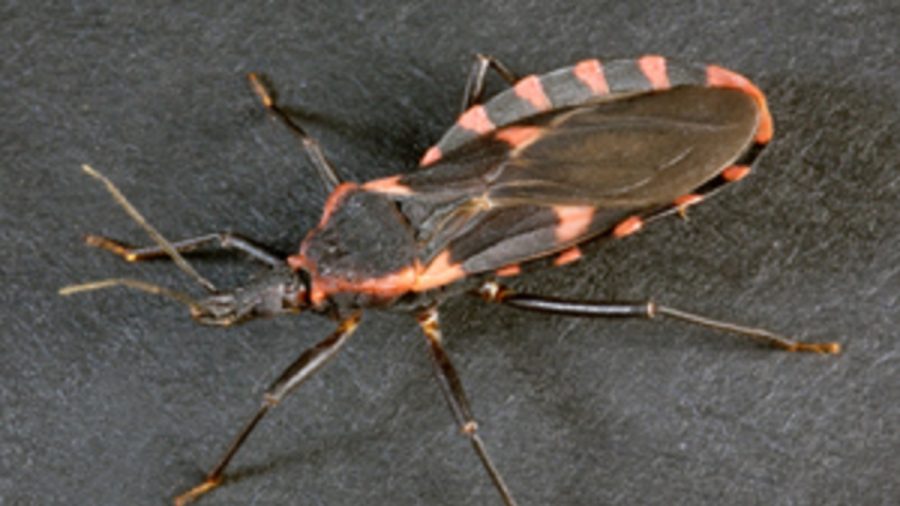Insects that are known as “kissing bugs” are making their way north and one got into a girl’s bedroom and bit her face, according to the Centers for Disease Control and Prevention (CDC).
The agency warned in September 2018 that the bug, which can pass along a fatal disease called Chagas, was making its way north and had been reported in Maryland, Pennsylvania, and Virginia.
This month, the CDC said that it verified a report from a family in Kent County, Delaware. It was the first verified case in the state.
The family told state officials that their child’s face was bitten while she was watching television in her bedroom while inside an older single-family house near a heavily-wooded area. An air conditioner sat in the window of the bedroom. The family said that it had not traveled outside the local area.


Staffers from the Delaware Department of Agriculture believed the bug was Triatoma sanguisuga, or the kissing bug, and the bug was sent to the CDC, which ran tests and confirmed it was the bug.
The girl who was bitten in the face did not get Chagas.
According to Texas A&M University, kissing bugs are nocturnal, blood-feeding insects. They have been spotted in 28 states, although some have only had one or two sightings.
The university said that studies indicate about half of kissing bugs are infected with the Chagas parasite.

The bugs feed on a range of animals including wild rodents, other wild mammals, and domestic dogs.
“Infection with Trypanosoma cruzi can cause Chagas disease in humans, dogs, and other mammals. Kissing bugs can transmit the parasite to hosts by biting and subsequently defecating near the site of the bite,” the university stated.
“The parasites live in the digestive tract of the bugs and are shed in the bug feces. When infectious bug fecal material contaminates the mucous membranes or the site of a bug bite on a mammal, transmission of the parasite can occur. Alternately, dogs can also become infected through the consumption of infected bugs.”

It added, “The parasite can be transmitted congenitally, through blood transfusion, and through transplantation of infected organs. Chagas disease is endemic throughout central and South America, and is increasingly recognized as both a human and veterinary health concern in the southern United States. Chagas disease became a reportable disease in Texas in 2013.”
It isn’t yet clear how many cases have cropped up in the United States. Estimates range from 300,000 to 1 million, with most believed to be around the United States-Mexico border. Worldwide, the kissing bug is found mostly in poor, rural areas of Mexico, Central America, and South America.
According to the CDC, precautions people can take to prevent infestation from the bugs include: locating outdoor lights away from dwellings such as homes, dog kennels, and chicken coops and turning off lights that are not in use; removing trash, wood, and rock piles and clearing out any bird and animal nests from around the home; and sealing cracks and gaps around windows, air conditioners, walls, roofs, doors, and crawl spaces into the house.

